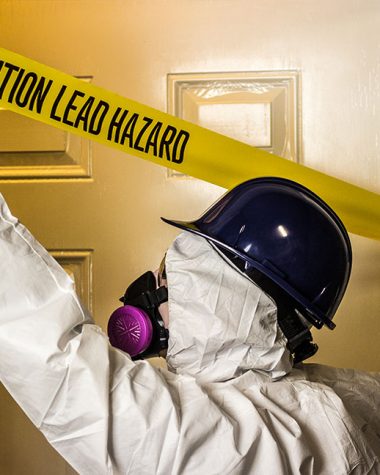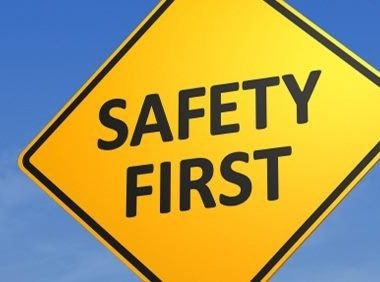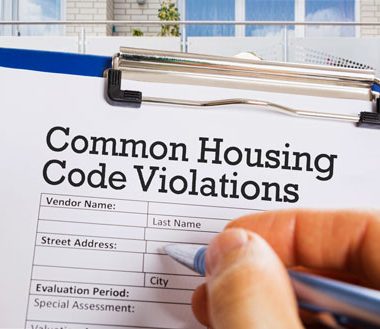Fire Safety in Basement Renovations
Basement renovations require a keen eye for detail when it comes to fire safety. Whether you’re knocking down walls or installing new electrical wiring, it’s essential to consider the risks of fire. Below, we’ll go over some tips on how to keep your basement renovation project safe and sound!
Understand Fire Hazards
It’s important to know the elements that may contribute to a fire. Common fire hazards in a basement include:
- Flammable materials like fuel, paint, and solvents
- Open flames during soldering
- Electrical wiring
- Chemicals that are too close together
- Furniture and fabrics that are too close to heaters and fireplaces
Planning and preparation
Planning is essential when it comes to fire safety. To reduce the risk of fire during basement renovations, you should:
- Schedule and plan your renovation carefully
- Obtain permits and professional advice (if necessary)
- Clean up any flammable materials
- Keep combustibles well away from heat sources and electrical wiring
- Store fuel containers, paints and other chemicals outside or away from your basement
- Take proper safety measures to avoid personal injury or damage to property
Exploring Fire Safety Options
When it comes to fire safety, there are plenty of options available to you. You might want to consider some of these:
- Install fire alarms and smoke detectors
- Install fire extinguishers and/or smoke alarms
- Buy fire resistant materials for construction
- Clean and maintain your basement regularly
- Install a fire escape or an emergency exit
- Check approved building codes to ensure electrical wiring is up to code and properly insulated
Choose Professional Assistance
If you’re unsure of how to handle fire safety in your basement renovation, it’s best to seek professional help. A qualified contractor or designer can advise you on the safest way to go about your renovation project. They can also help you choose the right fire safety materials for the job.
Precaution during Installation
When you’re ready to begin your renovation project, take the necessary precautions to avoid the risk of fire.
- Don’t leave any open flames unattended
- Keep combustible materials away from any lighting fixtures and heat sources
- Don’t overtax your electrical system
- Secure any fuel containers securely in a well-ventilated area
- Ensure the electrical wiring is installed properly and conforms to all safety codes
- Install an additional smoke alarm or fire extinguisher in the basement
- Check for leaks in the air handling system
Practice Prevention Strategies
Fire safety involves more than just using fire-resistant materials. It is important to be prepared in the event of a fire. Install fire extinguishers and smoke alarms in your basement, and practice proper fire prevention strategies. Make sure everyone in your household knows how use a fire extinguisher, and remember to test your smoke alarm on a regular basis.
Don’t Take Fire Safety for Granted
When it comes to basement renovations involving fire safety, it is important to always be prepared. Take the time to plan your basement renovation project thoroughly and adhere to proper fire safety procedures. That way, you can avoid the potential risks of fire and make sure your basement is safe and secure.
Conclusion
Fire safety is an essential part of basement renovations, and it’s important to take necessary precautions to avoid the risk of fire. From planning to installation, understanding fire hazards and seeking professional help, there are a number of strategies you can implement to ensure a stress-free basement renovation. Don’t take fire safety for granted – it’s the only way to guarantee that your basement will remain protected and hazard-free.
What precautions should be taken to ensure fire safety when renovating a basement?
1. Ensure that the area is well ventilated.
2. Install smoke alarms and keep them in good working order.
3. Install fire extinguishers in multiple locations throughout the basement.
4. Upgrade any electrical outlets or wiring to ensure that they meet safety standards.
5. Utilize flame-resistant building materials during any construction or remodeling.
6. Avoid using extension cords or power strips.
7. Never overload wall outlets or circuits.
8. Use fire-resistant insulation when insulating your basement walls and ceiling.
9. Do not store paints, Thinners, and other flammable liquids in the basement.
10. Keep all combustibles away from heat sources.
11. Remove all sources of ignition, such as cigarettes and matches, from the basement.
What measures should be taken to prevent fires when renovating a basement?
1. Ensure adequate ventilation is available throughout the work area.
2. Avoid the use of open flame torches or other heat sources.
3. Remove combustible materials away from the work area.
4. Be sure to check for any unsafe electrical outlets or wiring.
5. Install a smoke detector and CO2 detectors near all sleeping areas and high activity areas of the basement.
6. Utilize fire-retardant building materials such as drywall.
7. Ensure that all materials stored in the basement are properly labeled and stored in an organized fashion.
8. Notify the local fire department of any construction occurring in the basement.
9. Do not store flammable substances in the basement.
10. Keep a fire extinguisher nearby in case of emergency.
What precautions should be taken when painting a basement to prevent fire risks?
1. Ensure the basement is free of any potential sources of ignition, such as open flames, combustible materials, and spark-producing objects.
2. Cover any exposed electrical outlets with safety covers.
3. Use only low VOC, fire-resistant paints, such as water- or oil-based alkyds.
4. Avoid the accumulation of flammable liquids in the basement and use a flame-retardant drop cloth when painting.
5. Inspect the ventilation system for good circulation and install an appropriate ventilation system if none exists.
6. Open windows and operating exhaust fans to provide for cross-ventilation and ensure proper airflow.
7. Ensure exits are clear of debris and easily accessible in case of a fire.
8. Equip the basement with smoke detectors and a fire extinguisher.





